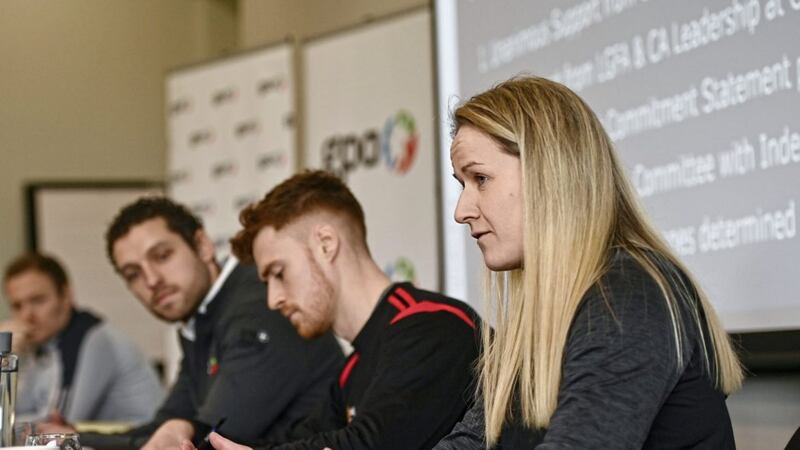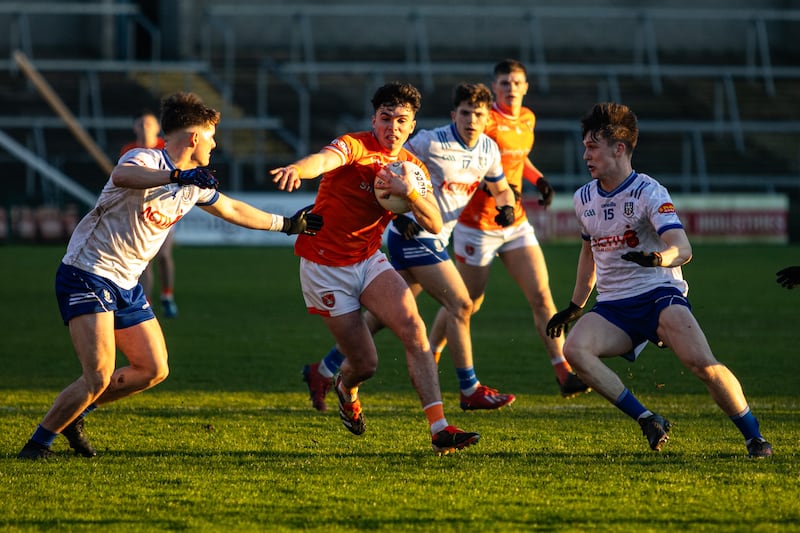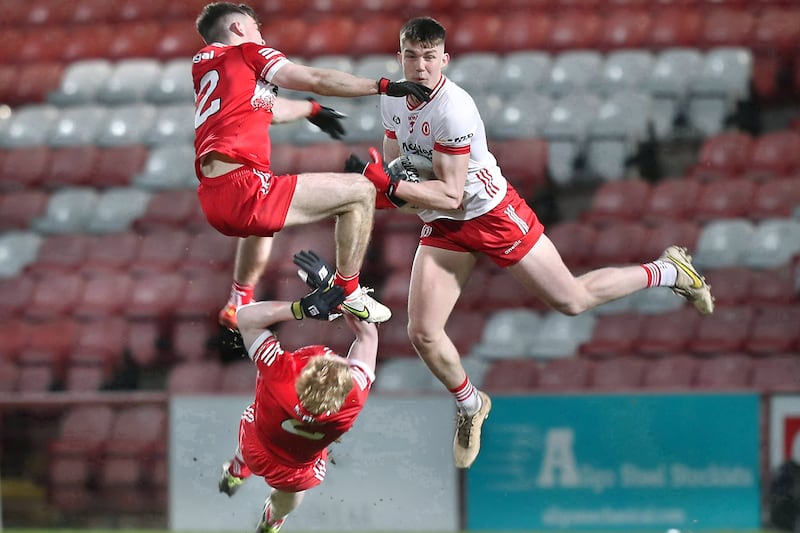TYRONE men's football star Conor Meyler has no complaints about how he and his colleague are treated – and he hopes female counterparts can say the same very soon.
The Omagh clubman says that he and his Red Hand squad-mates are well treated now, with expenses paid quickly and medical needs catered for speedily:
"I've seen a big difference over the last few years in Tyrone. The money is there to be spent.
"We did have issues, the added stress of having to chase up MRI scans or making sure you're getting your mileage back in good time. All that added stress has been taken away.
"I'd say we haven't spent much more over the past year, but having those things sorted on time by the people in administration, helps.
"If I need a scan or an operation, I'm waiting a week, not three weeks down the line. There's no longer three weeks of worry and stress, and you can get the recovery done more quickly."
Meyler is currently involved in a student guidance role at St Mary's University College in Belfast, but he's still studying himself, working towards a PhD in Sports Leadership and Gender at TUS (the Technical University of the Shannon).
Combining that with being an All-Ireland winning footballer is tricky, he says, but the O'Neill County administration has eased the burden:
"As a student in particular it's very challenging when you're travelling up and down the road, expecting your mileage [payment] to come in at a particular time and it doesn't come in until three weeks later, or it's maybe a bit short.
"That's where the GPA come in, we have these policies in place, and players can express these issues to their GPA rep, who knows 'This isn't on, this is part of the charter'. The money is there, make sure it's used.
"Taking care of all those wee things has been huge for us in Tyrone. It's not that boys are going looking much, we're not, but it's taken away all that added stress and pressure."
However, Meyler is aware that matters don't run so smoothly for female GAA players, citing the example of ladies footballer Gemma Begley:
"Gemma was a point of contact, running around trying to sort pitches. Her only focus should be how she plays at the weekend, but instead she's running around trying to organise other things. The bigger the GPA gets, the more voice it has, with the women's GPA involved all the one body, I think that's really positive."
Meyler is also cautiously optimistic about the new format for the inter-county senior football championship with the introduction of the second tier Tailteann Cup for tams from Divisions Three and Four which don't reach their provincial finals:
"It's going back to what we've spoken about: awareness, understanding. I'm blessed to be from Tyrone, so I've never had to worry about Divisions Three and Four or not achieving - I've had so much success in my career.
"By having conversations with players from other counties you start to realise that they're putting in the same work and they're not getting anywhere near the same rewards. That is challenging because a lot of them know from an early stage in the season that they're probably not going have success at the end of it in terms of silverware. It's about quantifying what is 'success' too.
"By having a two-tier championship, I think it's beneficial. It does give counties who are playing at a lower level an opportunity to fight for something.
"Within our counties [at club level] we have Senior, Intermediate, Junior Championships and it works well. If you're in the Junior Championship, you are competing with teams at your level to win something and to go on further.
"Sport is ultimately about participation and feeling valued within a team and all the rest - but you want to have some sort of success or silverware at the end of it.
"Having some sort of a staggered championship is better, definitely more competitive."
Meyler is pleased that the Red Hands will get a chance to defend their Ulster SFC crown, won after a hard-fought final battle with Monaghan at Croke Park:
"From a Tyrone perspective, we always hold the Ulster Championship in such high regard. Again, the wider picture, if you're looking at the top teams, you maybe have to step back to see what's going to help the whole organisation.
"Teams are competing in other provinces, in the likes of Leinster and Munster, they know from the outset that they're not going to win it. They maybe lose in the first round every year. So where is the motivation and the pride to keep coming back and back? How do they get the best players out every year?
"From a Tyrone perspective, Ulster is becoming more and more competitive and it's great to be involved in."







